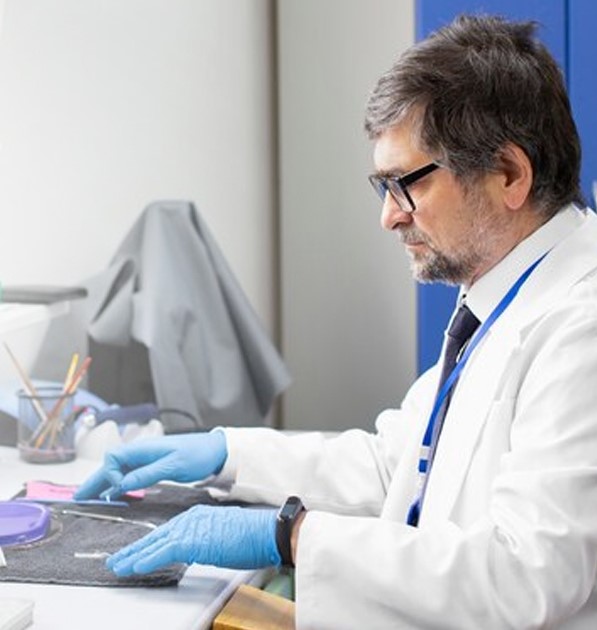Innovative Approaches for Safer and More Effective Healthcare

Strong 8k brings an ultra-HD IPTV experience to your living room and your pocket.
In a rapidly evolving world, healthcare is fundamental to progress. This article explores how innovative approaches are reshaping the healthcare landscape, focusing on the pivotal roles of clinical trials and contract research organizations (CROs). Technological advancements, patient-centricity, and adaptive trial designs are highlighted as driving forces in creating safer and more effective healthcare solutions.
In our constantly changing world, healthcare is an essential element of growth. Pursuing safer, more effective healthcare solutions has led to innovative strategies transforming the industry.
Clinical trials and Contract Research Organisations (CROs) play essential roles in these transformative methods. Let's explore these approaches and understand how they contribute to making healthcare safer and more effective.
Technological advancements, evolving patient expectations, and the need for proven, evidence-based therapies collectively drive substantial changes in the healthcare sector. This evolution has given rise to innovative strategies prioritising patient safety while improving healthcare effectiveness.
The Significant Role of Clinical Trials
Clinical trials are the top-tier method for determining how well and safely new medical interventions, like drugs, medical devices, and therapies, perform. These trials are planned and executed to collect essential data, evaluate results, and secure regulatory approval. Yet, the traditional approach to clinical trials has encountered challenges such as lengthy timeframes, high expenses, and limited patient participation.
Innovative Clinical Trial Approaches
Decentralised Clinical Trials (DCTs)
Advancements in telemedicine and digital healthcare solutions have made it possible for clinical trials to transition toward decentralisation. Now patients can participate from the convenience of their homes, minimising clinic visits. CROs play an essential role in implementing DCTs by leveraging technology to collect data remotely, ensuring patient safety, and maintaining data integrity.
Adaptive Trial Designs
Traditional clinical trials follow a rigid protocol from start to finish. Adaptive clinical trialdesigns allow for real-time adjustments based on emerging data. This flexibility enhances efficiency, reduces costs, and expedites the development of safe and effective treatments.
Master Protocols
Master protocols, such as the "umbrella" and "basket" designs, enable the evaluation of multiple therapies or patient populations within a single trial. This approach accelerates drug development, increases patient access to experimental treatments, and optimises resources.
Patient-Centric Trials
Recognising the significance of patient perspectives, patient-centric trial designs involve patients in decision-making, protocol development, and trial monitoring. This approach improves patient engagement, retention, and the overall quality of clinical data.
Role of Contract Research Organisations (CROs)
CROs are instrumental in bringing innovation to clinical trials. These specialised entities collaborate with pharmaceutical companies, biotech firms, and academic institutions to efficiently design, conduct, and manage clinical trials. CROsbridge the gap between scientific innovation and practical implementation, contributing significantly to safer and more effective healthcare.
How Contract Research Organisations Drive Innovation
Expertise and Efficiency
CROs bring extensive expertise in clinical trial design and execution. Their teams include professionals with various expertise, such as clinicians, data analysts, and regulatory professionals. This diverse approach ensures that clinical trials are performed with utmost precision and effectiveness.
Access to Advanced Technologies
Contract Research Organisations invest in innovative and emerging technologies to gather data, analyse it, and monitor safety. These technologies enable real-time data access, allowing sponsors to make informed decisions promptly.
Global Reach
CROs often have a global presence, crucial for conducting multinational clinical trials. Their knowledge of international regulatory requirements and access to diverse patient populations ensure that trials are comprehensive and representative.
Risk Management
CROs play an important role in risk management throughout the trial process. They identify potential risks and implement mitigation strategies to safeguard patient safety and data integrity.
The Synergy Between Innovation, Clinical Trials, and CROs
The synergy between innovation, clinical trials, and CROs drives healthcare into a new era. Here's how these components work together to enhance healthcare:
Enhanced Drug Development
Innovative trial designs and the expertise of CROs enable faster drug development, ensuring that life-saving medications reach patients sooner.
Read more: https://www.pharmafocusasia.com/articles/innovative-approaches-for-safer-and-more-effective-healthcare
Follow us:
Facebook https://www.facebook.com/PharmaFocusAsia/
LinkedIn https://www.linkedin.com/company/pharmafocusasia/
Twitter https://x.com/pharmafocusasia
Instagram https://www.instagram.com/pharmafocuseurope/
Pinterest https://in.pinterest.com/asiapharmafocus/
Note: IndiBlogHub features both user-submitted and editorial content. We do not verify third-party contributions. Read our Disclaimer and Privacy Policyfor details.


